Climate Note · Jan 9, 2019
Who is changing their mind about global warming and why?
By Kathryn S. Deeg, Anthony Leiserowitz, Edward Maibach, John Kotcher and Jennifer Marlon
Filed under: Beliefs & Attitudes

As of March 2018, the majority of Americans (73%) believe that global warming is happening, and over half of registered voters (59%) believe that humans are the primary cause (Leiserowitz et al., 2018). These numbers have grown in recent years, and even six in ten Trump voters support taxing and/or regulating the pollution that causes global warming (Leiserowitz et al. 2017). Who exactly has changed their mind and why, however, is not well understood. To examine this, we analyzed nationally representative survey data that asked Americans whether they had changed their opinions about global warming, and if so, why?
Questions from three surveys conducted by the Yale Program on Climate Change Communication and George Mason University Center for Climate Change Communication between 2011 and 2015 were combined for the analysis. Survey respondents were asked if they had recently changed their opinion about global warming (Q1), and if so, how and why their opinion changed (Q2).
| Survey wave | Q1 text | Q2 text | Sample size |
| May 2011 | Over the past year or two, have you changed your opinion about global warming? | How has your opinion changed and why? | n=1042 |
| March 2012 | Over the past year or two, have you changed your opinion about global warming? | How has your opinion changed and why? | n=998 |
| October 2015 | Over the past year, have you changed your opinion about global warming? | Briefly, in what way did your opinion change? | n=1325 |
Table 1. Question wording and sample sizes for each survey wave.
For this analysis, we treated all responses to Q1 the same, regardless of whether the exact text referred to the “past year” or the “past year or two.” We analyzed responses to Q2 to determine if the respondent become more or less concerned (or no change in concern), and their reasons for changing their opinion. The total sample size after grouping responses was n=3365.
Have Any Americans Changed Their Opinion About Global Warming?
We found that across the three surveys, 8% of Americans had recently changed their opinion about global warming.
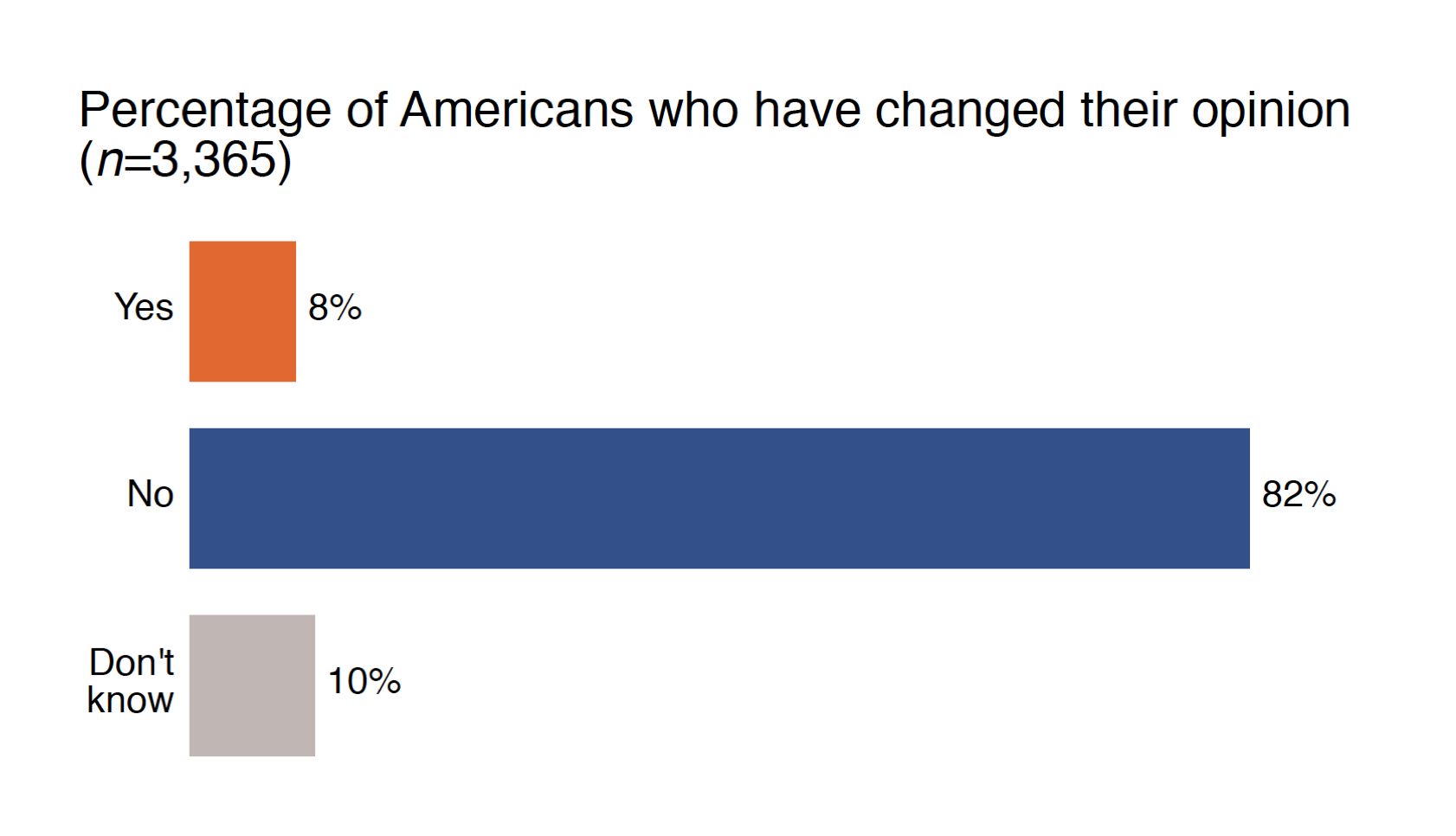 Figure 1. Percentage of Americans who changed their opinion about global warming.
Figure 1. Percentage of Americans who changed their opinion about global warming.
Who Changed their Opinion About Global Warming?
To determine if some groups of people were more likely to have changed their minds about global warming, we examined respondents’ answers across different demographics. We found relatively small differences. Exceptions included Democrats (10%) who were slightly more likely than Independents (6%), older adults (65+; 11%) were more likely than young adults (18 to 24; 6%), and women (10%) were more likely than men (6%) to have changed their minds.
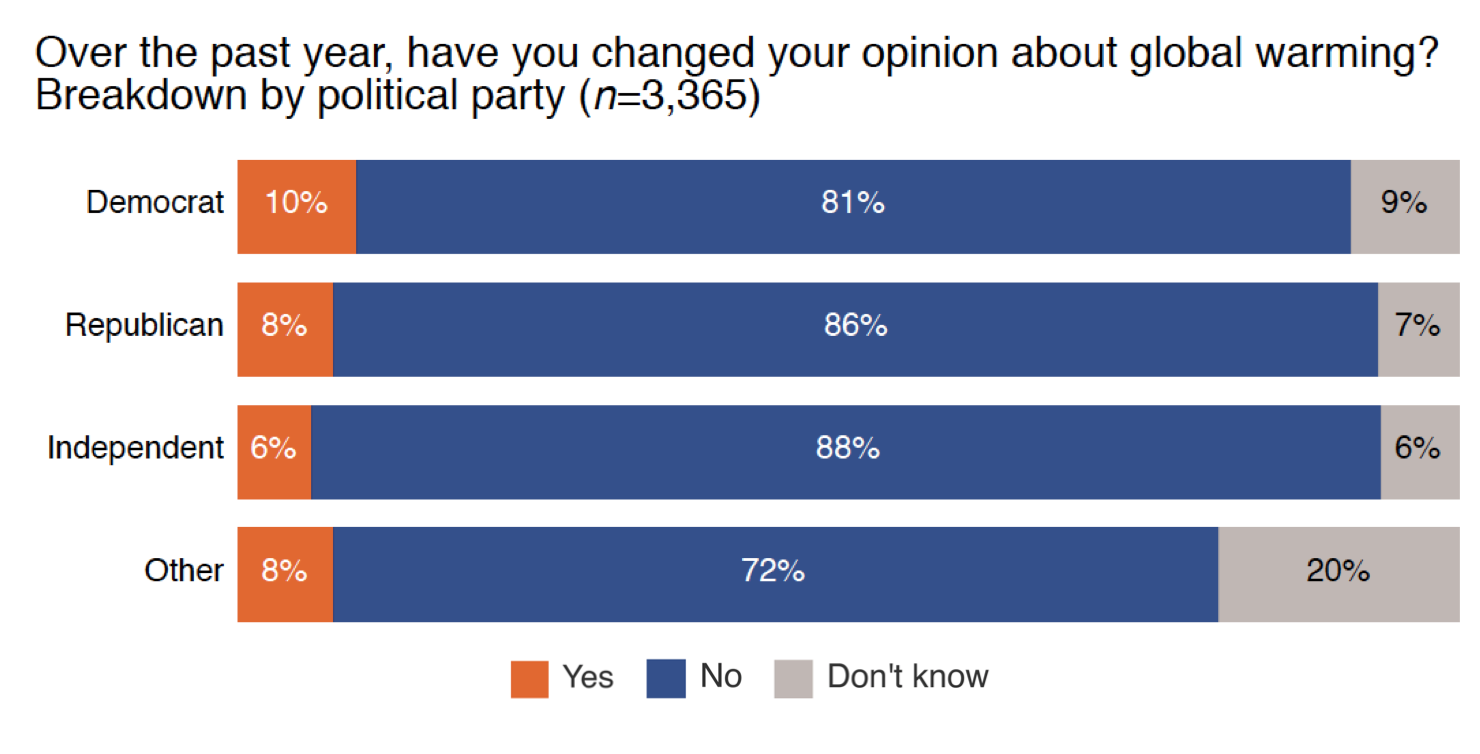 Figure 2. Changes in opinion about global warming by political party.
Figure 2. Changes in opinion about global warming by political party.
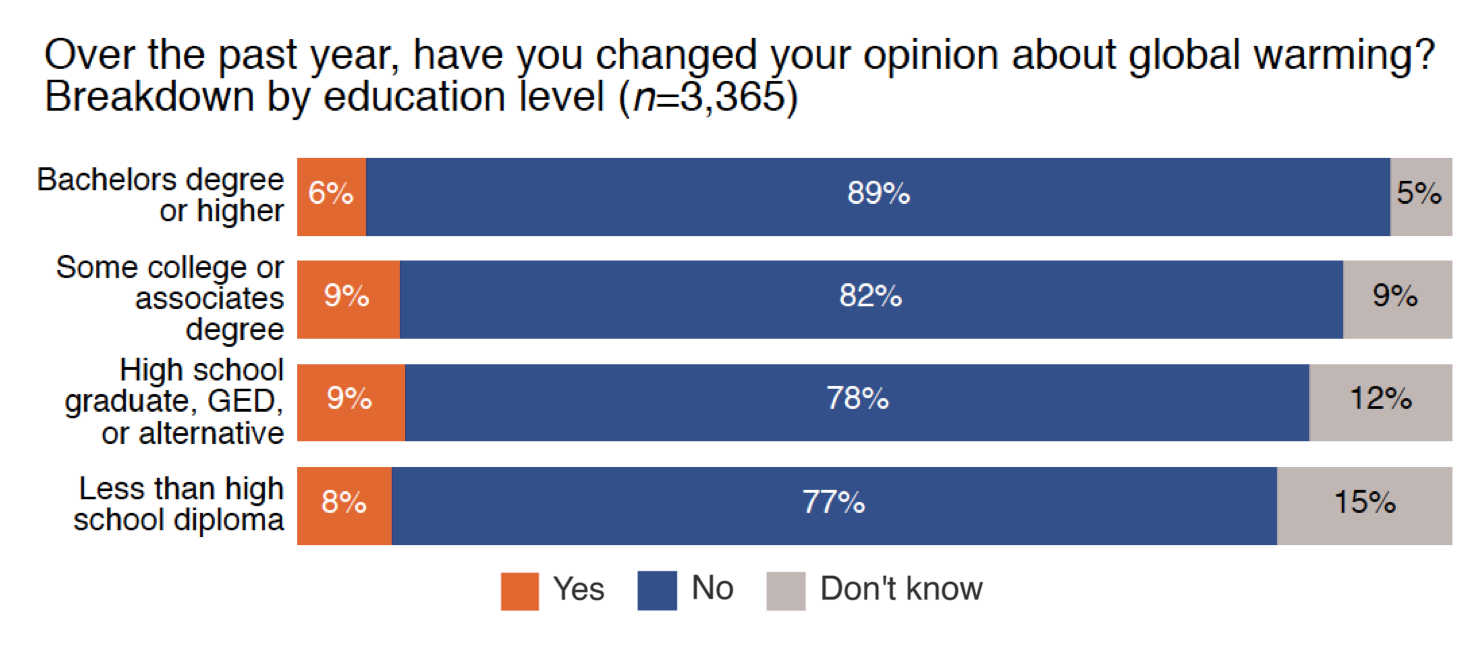 Figure 3. Changes in opinion about global warming by education.
Figure 3. Changes in opinion about global warming by education.
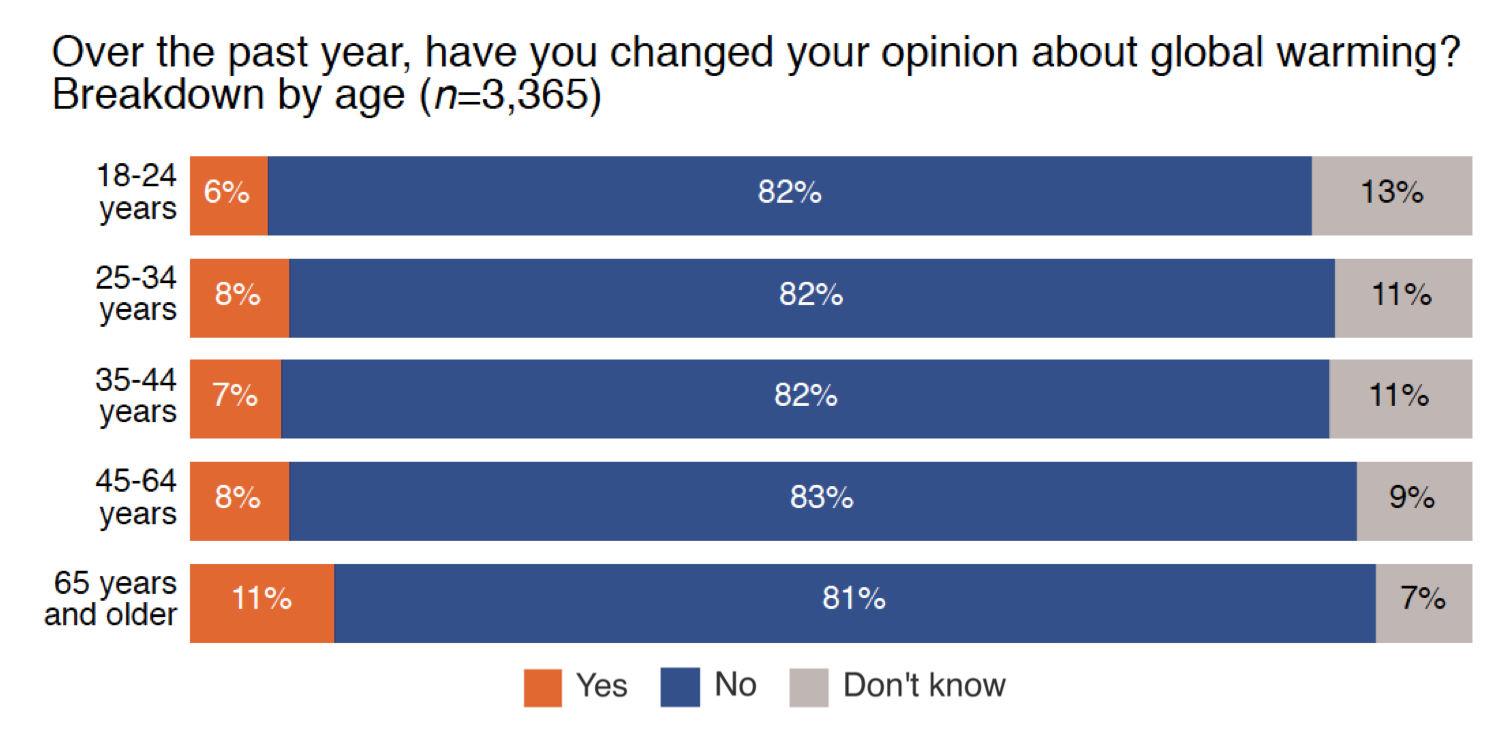 Figure 4. Changes in opinion about global warming by age.
Figure 4. Changes in opinion about global warming by age.
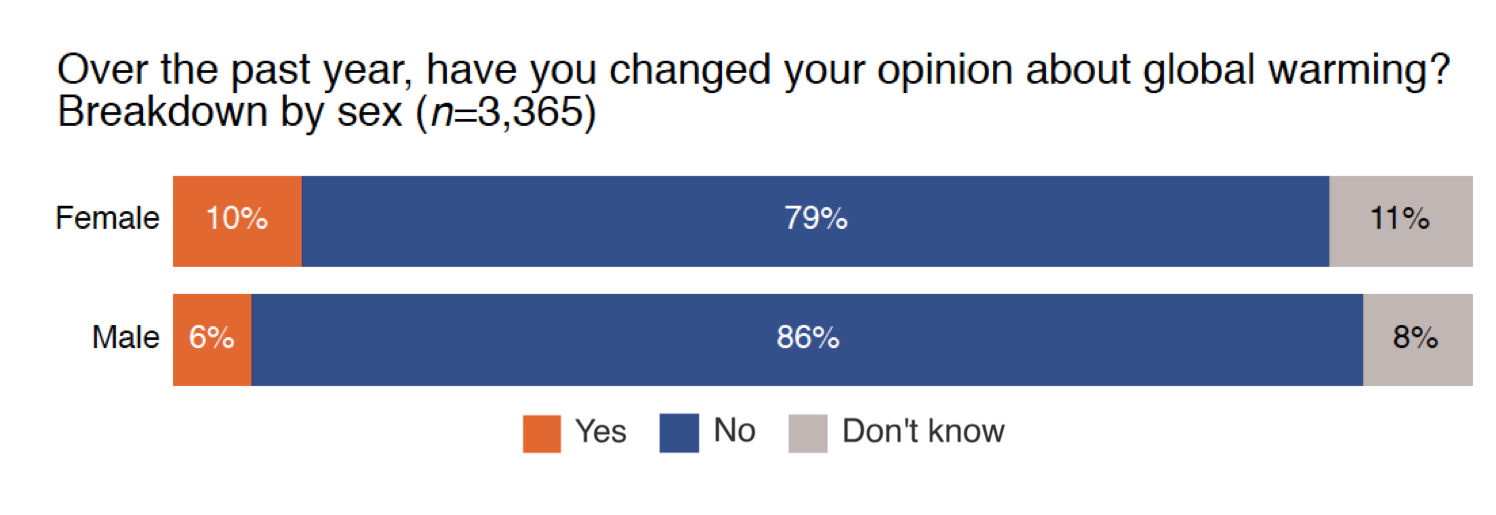 Figure 5. Changes in opinion about global warming by sex.
Figure 5. Changes in opinion about global warming by sex.
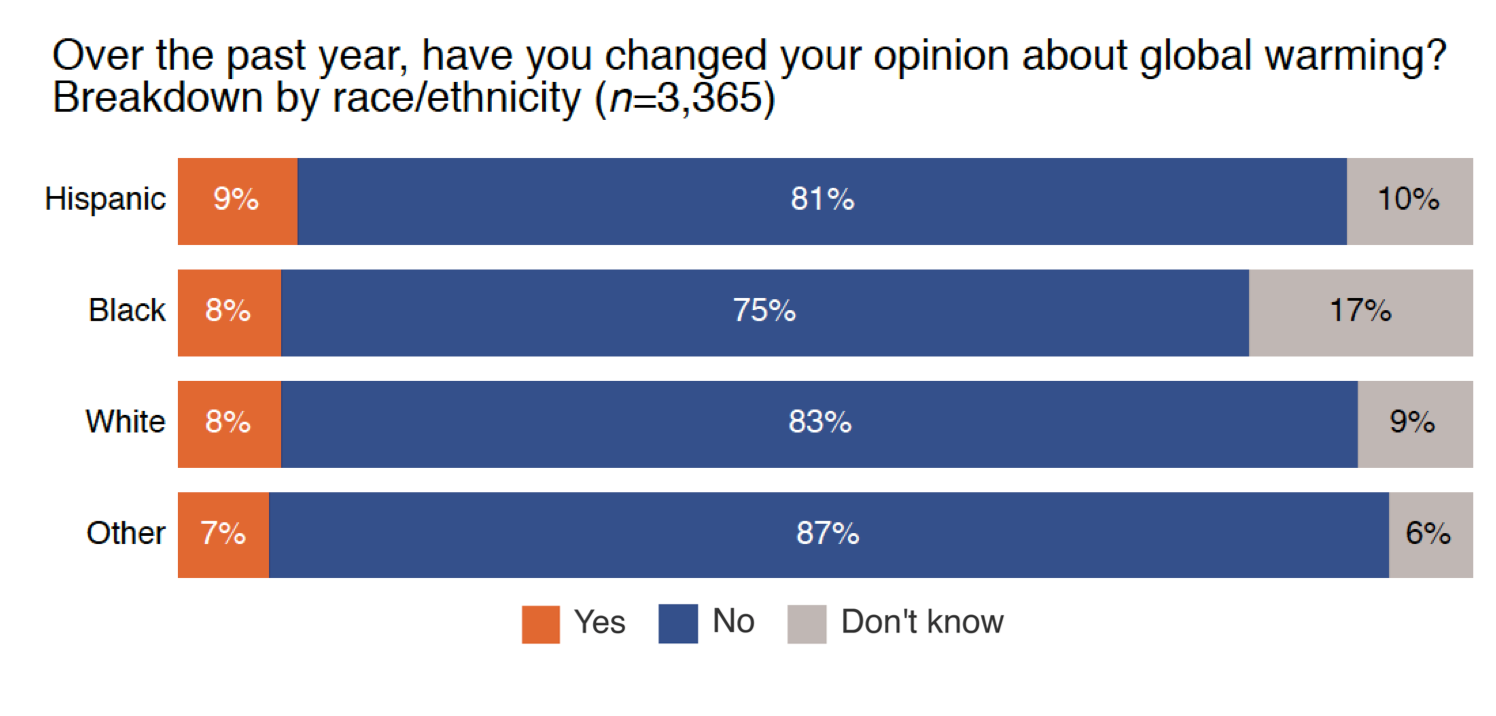 Figure 6. Changes in opinion about global warming by race/ethnicity.
Figure 6. Changes in opinion about global warming by race/ethnicity.
Did People Become More or Less Concerned About Global Warming?
Of those respondents who expressed a change in their level of concern in a clear direction (n=186), the great majority (84%) said that they had become more concerned about the issue; 16% said they had become less concerned. Similar proportions of Democrats and Republicans became more concerned, while fewer Independents and people not affiliated with a major political party or not interested in politics became more concerned.
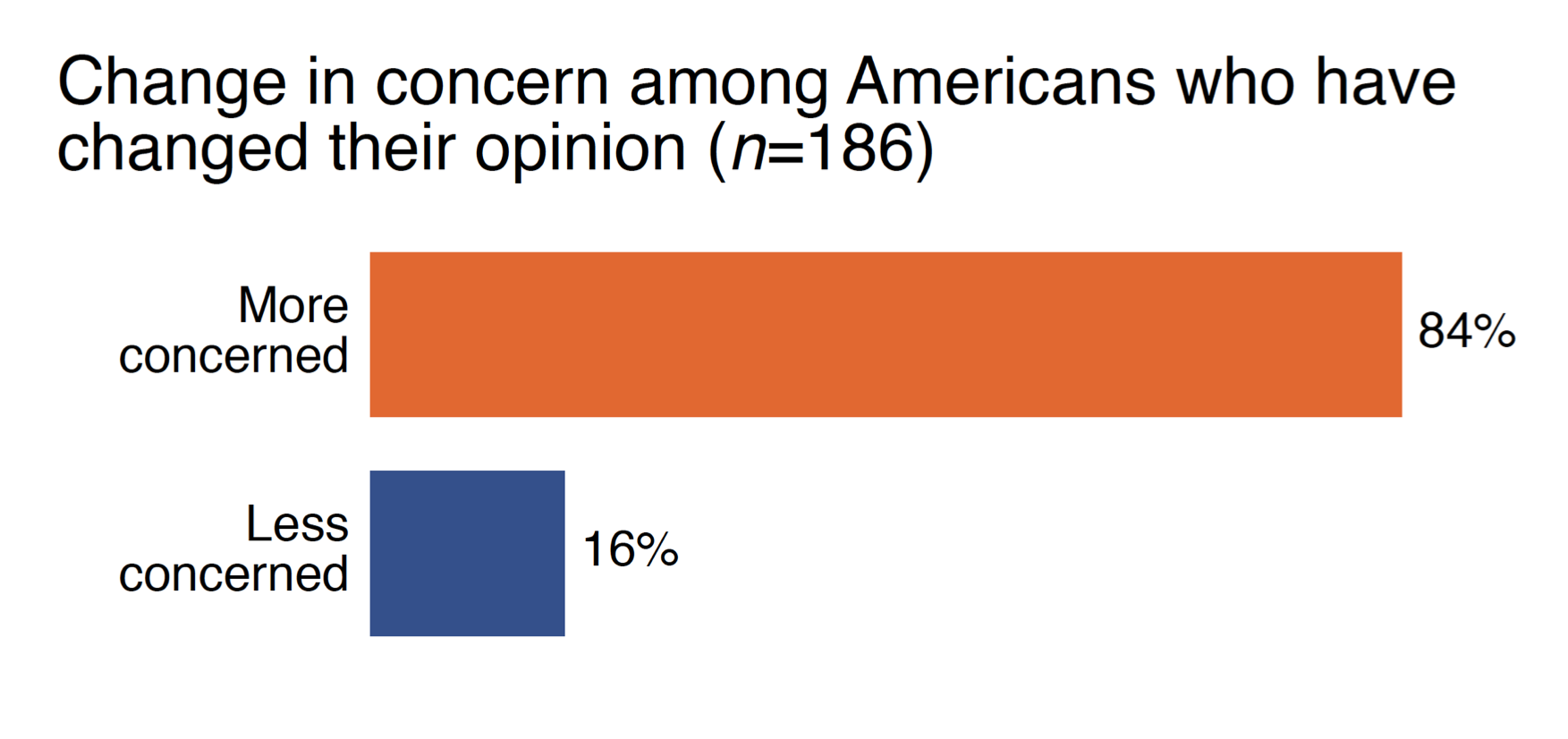 Figure 7. Direction of change in concern about global warming.
Figure 7. Direction of change in concern about global warming.
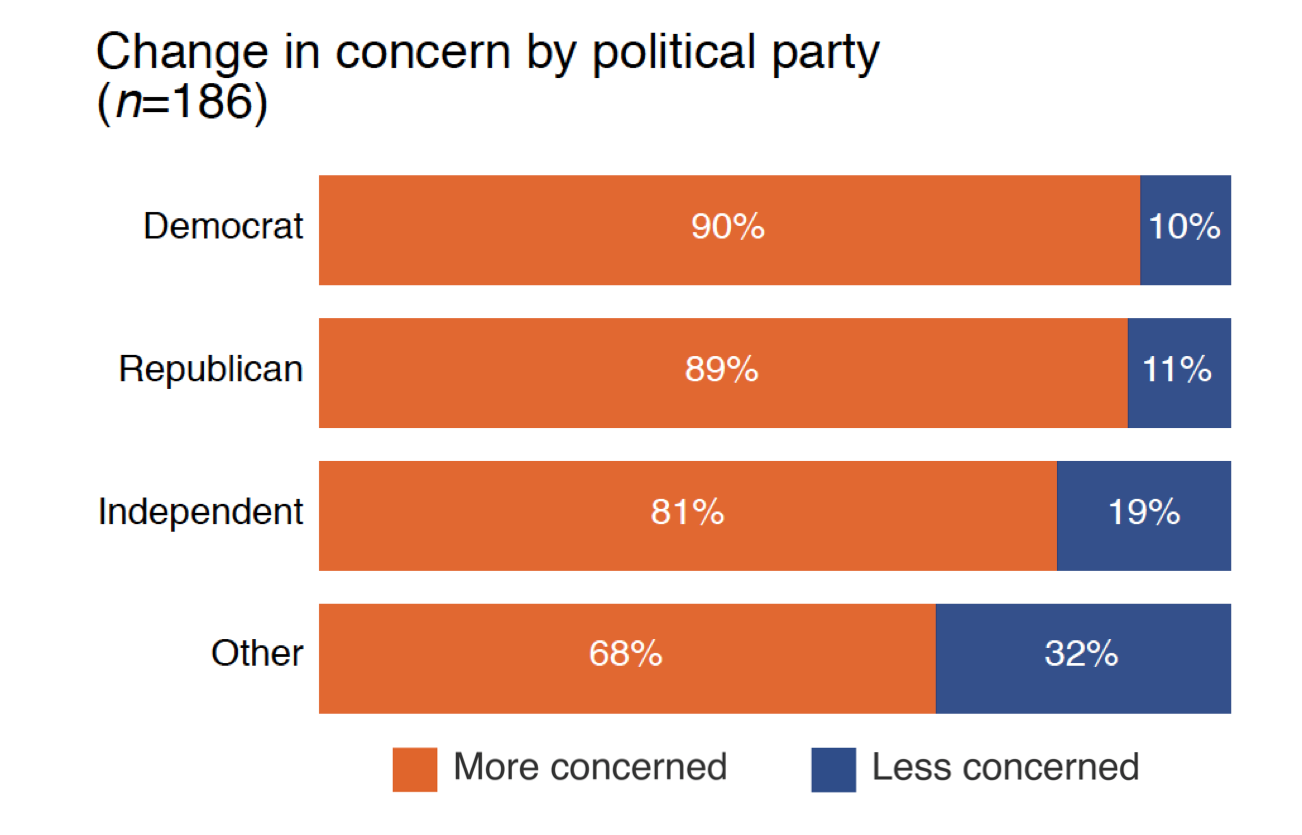 Figure 8. Direction of change in concern about global warming by political party.
Figure 8. Direction of change in concern about global warming by political party.
Why Did People Become More or Less Concerned About Global Warming?
Of people who became more concerned about global warming, the most common reasons given were: 1) directly experiencing climate change impacts; 2) taking it more seriously (for unspecified reasons); 3) becoming more informed about global warming; and 4) hearing about climate change impacts. Of people who became less concerned about global warming, the most common reasons given for changing their minds were: 1) believing that global warming is a natural process (not human-caused), and 2) believing that global warming is a lie or hoax. However, 24% of those who changed their opinion did not provide a complete or clear response as to why (these individuals are excluded from the following analyses).
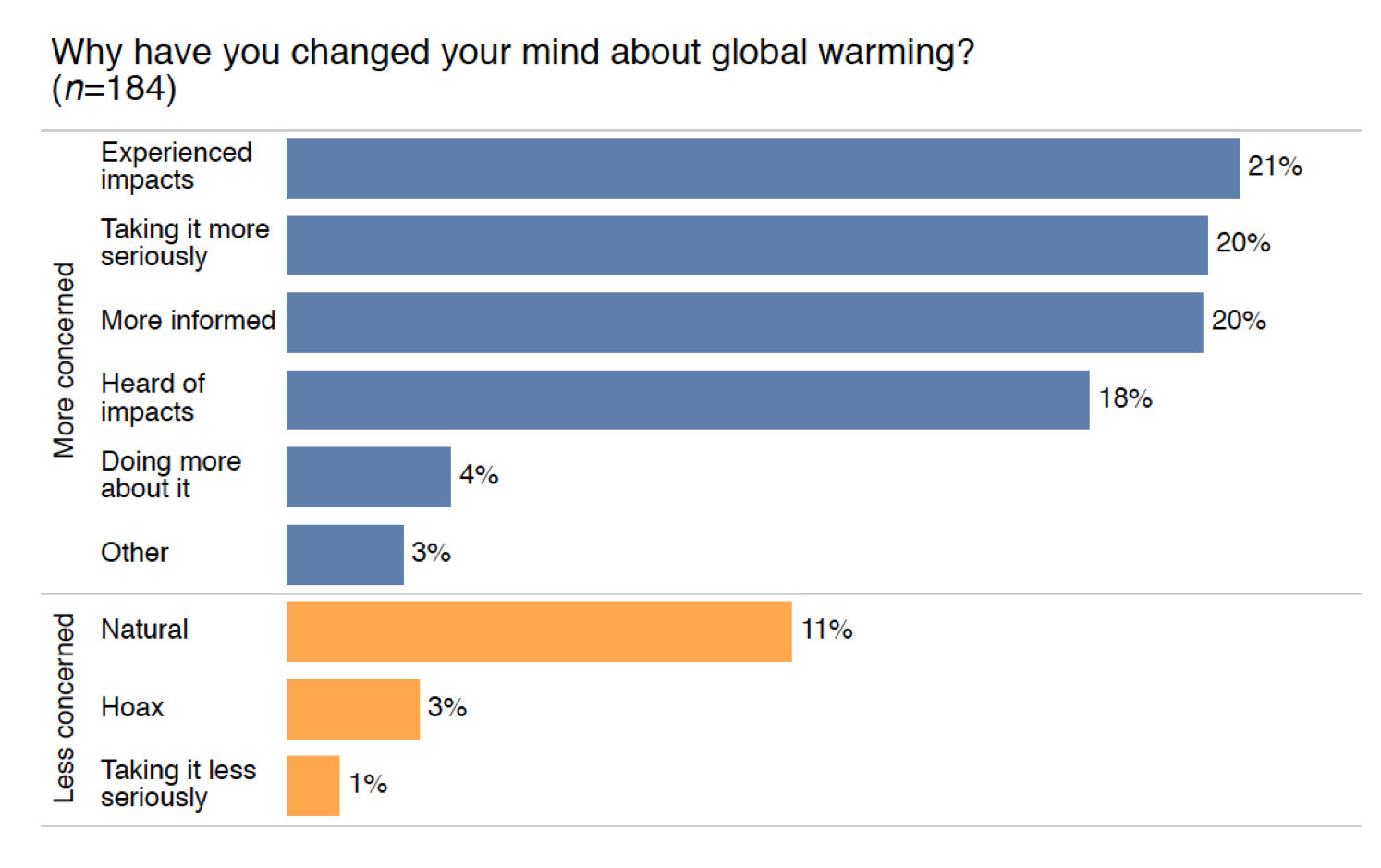 Figure 9. Percentage of people who changed their minds about global warming in each reason category.
Figure 9. Percentage of people who changed their minds about global warming in each reason category.
In conclusion, in each of several recent surveys, a small but meaningful number of American adults reported having changed their minds about global warming—with more than 4 out of 5 of them becoming more concerned. Most people offered three different reasons why they changed their minds: they had either personally experienced climate impacts or heard about them; they learned more about the problem; or they had come to see the problem as more serious. This suggests that efforts to communicate about the reality of human-caused climate change, and its current relevance to Americans—including its impacts on local temperatures, precipitation, and extreme weather patterns—may be helping some Americans better understand the problem.
Notes
The self-reported explanations for opinion change in the analyses, while useful, are introspective in nature and therefore prone to error given that individuals may not be consciously aware of all of the factors that contributed to their change in opinion. For the survey data used here, the margin of error is +/- 3 percentage points. Demographic variables were weighted, post survey, to match U.S. Census Bureau norms. Percentages may sum to 100 +/-1 percentage points due to rounding.
References
Leiserowitz, A., Maibach, E., Roser-Renouf, C., Rosenthal, S., Cutler, M., & Kotcher, J. (2018). Politics and Global Warming: May 2018. Yale University and George Mason University. New Haven, CT: Yale Program on Climate Change Communication.
Leiserowitz, A., Maibach, E., Roser-Renouf, C., Cutler, M., & Rosenthal, S. (2017). Trump Voters & Global Warming. Yale University and George Mason University. New Haven, CT: Yale Program on Climate Change Communication.
Maibach, E. W., Leiserowitz, A., Roser-Renouf, C., & Mertz, C. K. (2011). Identifying like-minded audiences for global warming public engagement campaigns: An audience segmentation analysis and tool development. PloS ONE, 6(3), e17571.
Roser-Renouf, C., Maibach, E., Leiserowitz, A., & Rosenthal, S. (2016). Global Warming’s Six Americas and the Election, 2016. Yale University and George Mason University. New Haven, CT: Yale Program on Climate Change Communication.